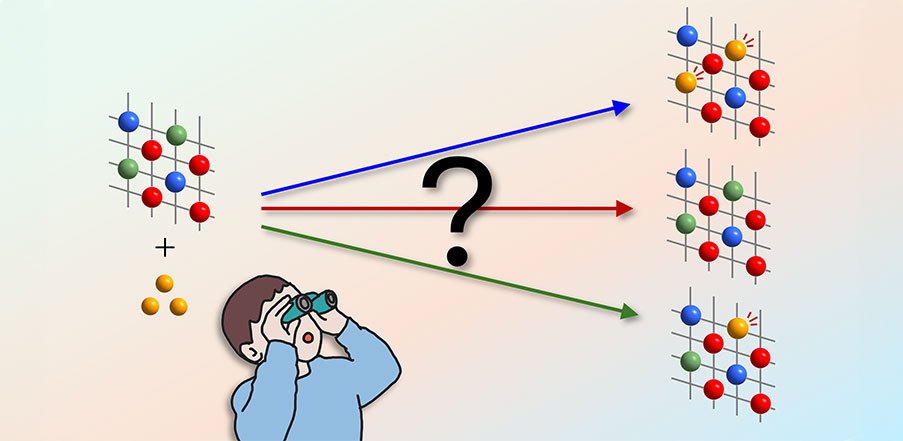Tasmanian cherry grower Reid Fruits has teamed up with brand and product integrity startup Laava to prevent counterfeiters from copying Reid’s distinctive packaging.
Reid Fruits is applying Laava’s patented Smart Fingerprint technology on its cherry boxes for 20 export markets during the 2019–20 season. The technology uses advanced computer vision technology developed in collaboration with CSIRO to produce a unique ‘fingerprint’ that can be scanned by any smartphone.
Unlike barcodes or QR codes used in the past, Laava’s Smart Fingerprint technology is much harder to impersonate or replicate and much more secure, making it more resistant to counterfeiting. It also delivers detailed brand and product information and interactive experiences to consumers. In addition, the technology can be easily modified to include new features.
‘Our Laava Fingerprints are designed with two things in mind: to enable better experiences, trust and transparency for consumers, and to ensure safety and security for brands,’ says Gavin Ger, Commercial Director, Laava.
‘Counterfeiting is a massive issue for us and other Australian producers,’ says Tim Reid, Managing Director, Reid Fruits. ‘Laava’s Smart Fingerprint technology offers a level of secure authentication that we believe will make it extremely difficult for counterfeiters to replicate.’
Fighting the fakes
Based in southern Tasmania, Reid Fruits is a family-owned business that has been operating since 1856. After growing apples for over 140 years, in 2000 the company turned its attention to cherries, securing a 500-acre property in the Derwent Valley where it has planted more than 100,000 cherry trees.
Reid Fruits started exporting cherries in 2005. Almost from day one, the company’s premium products have been targeted by counterfeiters, including in Hong Kong, Malaysia, Taiwan and Vietnam. In 2018, Reid Fruits received a photo from an Indian distributor of one of its cherry boxes – two weeks before the export season started.
Counterfeiting is particularly problematic in China, Reid Fruits’ largest export market. Following a visit by Chinese President Xi Jinping in 2014, demand for Tasmanian products and Tasmanian cherries in particular skyrocketed – as did the counterfeiting of Reid Fruits’ cherries.
Reid Fruits has spent tens of thousands of dollars to prevent counterfeiting, switching to higher-quality packaging, using special processes such as embossing and foil on its cartons, introducing a watermark on its box bases and printing its logo on the long-life plastic liners that keep cherries fresh in the box. The company has also included a seasonal, laser-cut, embossed foil sticker on the outside of its boxes and a card inside with a unique QR code which when scanned, links to a website that authenticates the product.
‘In the 2018 season, all these elements were copied within the first two weeks of the boxes appearing in the Chinese market,’ says Tony Coad, Manager, Marketing and Sales, Reid Fruits.
The QR-based technology was especially troubling for Reid Fruits, as counterfeiters simply created their own QR codes that linked to a fake authentication website (a technique known as ‘spoofing’).
‘It’s hard to quantify the impact on our sales simply because we really don’t know how much counterfeiting is going on,’ says Coad. ‘For example, counterfeit products are being sold online at a reduced price, so that puts pressure on us to lower our price to be competitive.
‘Counterfeiting not only leads to a direct loss of sales for us, it also affects our importers and distributors. In 2018, one of our Chinese importers had his sales basically halved from the year before, he estimates he lost around A$400,000.’
In addition to loss of revenue, counterfeiting puts Reid Fruits’ reputation at risk. ‘If the counterfeit product is of an inferior quality – and they usually are – that can have a damaging long-term impact on our brand,’ says Coad.
He adds that counterfeiting has industry-wide ramifications. ‘A significant amount of work has gone into negotiating protocols for Australia to gain access to the markets with which we trade. If the counterfeit products are contaminated, this could severely jeopardise our market access.’
Advanced optical technology delivers trustworthy authentication
Reid Fruits’ search for new anti-counterfeiting technology led the company to ask Austrade for assistance. Austrade’s industry experts introduced Reid Fruits to a number of companies offering innovative authentication solutions.
After an extensive assessment, Reid Fruits elected to work with Laava.
‘Laava is using a newer, higher standard of optical recognition which is not so easy to impersonate or replicate,’ says Coad. ‘We also wanted something that would be ready to roll out for the 2019–20 season and Laava’s technology was ready to go: they sent us an email with a product proposal and we could use our smartphones to test it.’
Developed and refined in collaboration with CSIRO over two years, Laava’s Fingerprint technology is unique in that it uses an optically based process to validate products. The technology also uses multi-factor authentication, is blockchain-ready and integrates directly with industry-standard packhouse management and traceability solutions.



